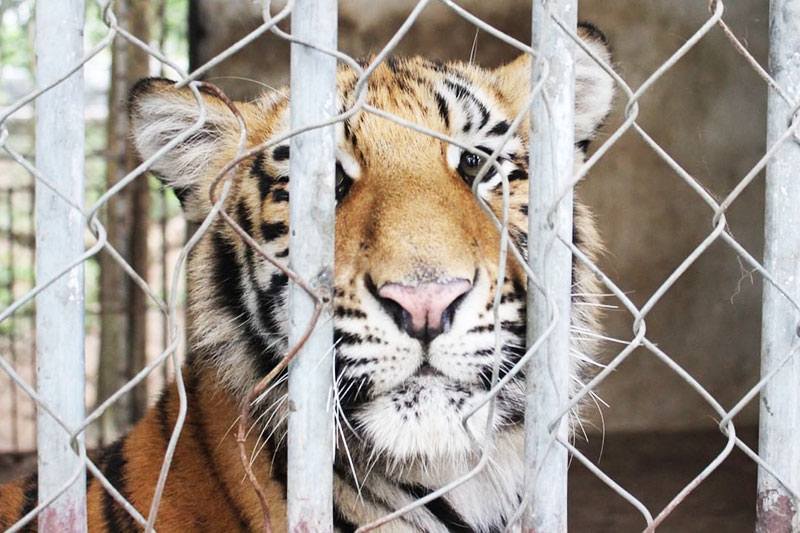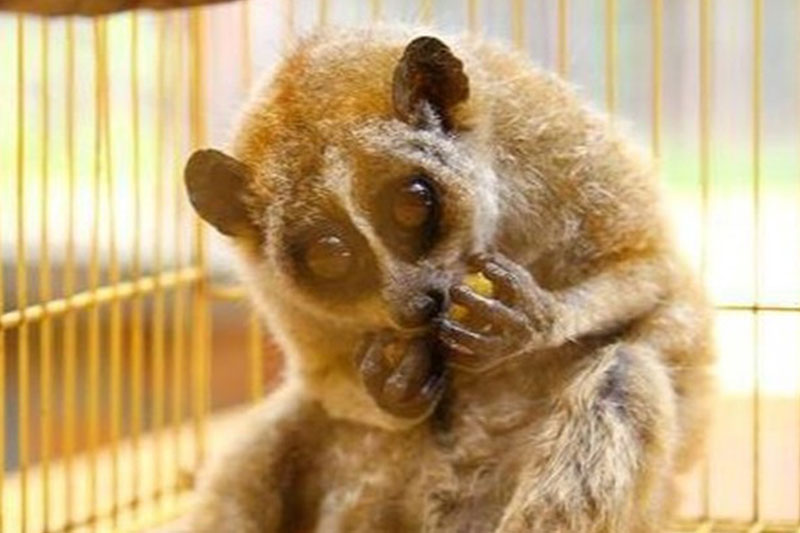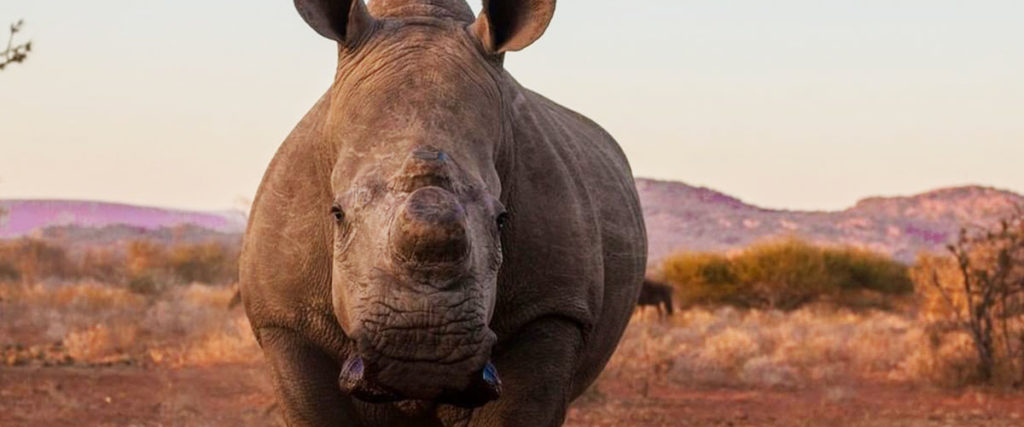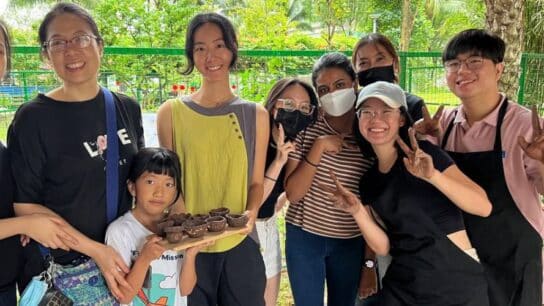Education for Nature Vietnam founder Vu Thi Quyen discusses how crackdowns on Vietnam’s illegal wildlife trade need greater enforcement, better legislation, and more public support.
Shortly after graduating from Hanoi National University, Vu Thi Quyen’s work in environmental conservation began in 1996 when she joined the Cuc Phuong Conservation Project to help develop Vietnam’s first, longest and largest community-based conservation education program. After working to educate the public about the importance of protecting the integrity of the national park, Quyen discovered her passion for environmental preservation and decided to continue with her conservation efforts. By 2000, she had established Education for Nature Vietnam (ENV), Vietnam’s first non-governmental organisation dedicated to preserving nature and the environment, with a focus on wildlife conservation. Quyen sits down with Hive Life to discuss the ongoing battle against Vietnam’s illegal wildlife trade and how we can contribute to these efforts.

Walk us through your founding story. How did you get started with Education for Nature Vietnam?
After a few years of running the Cuc Phuong Conservation Project programme, we helped other parks and protected areas in Vietnam to set up similar initiatives. I was supposed to go back to Hanoi but, by that time, I had already fallen in love with what I was doing. I felt like we were doing something meaningful. But the projects couldn’t last forever, and we realised that we needed a local NGO to deal with wildlife conservation issues in Vietnam. So we created Education for Nature Vietnam, which initially focused on educating the Vietnamese public about the importance of protecting nature and wildlife, and we continued to provide training for parks around the country.
But as we continued with our efforts, we realised that while educating future generations is very important, education alone is not enough – we needed a much more aggressive approach. So, we created our second arm: enforcement. We created national toll-free hotlines so the public could report wildlife crimes and, after working with local authorities to combat the crime, we would report back to the public. It was a very rough road in the beginning, but Vietnam has come a very long way. Now, we get over 1,000 cases reported to us yearly – so far we’ve received about 16,000 reports from the public.
After a couple of years of working with law enforcement, we realised that there were a lot of problems with law and policy, which is why we created another arm that focuses on strengthening law and policies in Vietnam. We work with the relevant agencies to help strengthen the laws, close loopholes in wildlife legislation, and address the conflicts in the laws. All in all, we focus on three areas: reducing public demand for wildlife, enforcement, as well as policy and legislation.
What is your ultimate goal?
My ultimate goal is that ENV will be able to help protect biodiversity and keep the natural ecosystems intact so that Vietnam won’t become a country without forests or wildlife and our future generations know what a bear or a tiger looks like. That’s very much my concern – even though we make a lot of progress, I don’t know if we have enough time. But overall, I’m very happy with the direction Vietnam is going.
Vietnam is one of the world’s largest consumers of rhino horn. What is the government doing to curtail this?
In recent years, we’ve gotten a lot of criticism related to rhino trafficking from the international community. But Vietnam has made a lot of progress and made every effort to try to curb the demand and address the problems. Since the new Penal Code came into effect in 2018, we’ve started to see a lot of long-term imprisonment sentences. Wildlife trafficking used to be seen as a very low-risk but profitable illegal business, but we hope that, with a few more years, criminals will see that wildlife trafficking is risking 10 or 15 years in prison and that it’s just not worth it. We hope that we can create a strong deterrence to prevent future crimes. Of course, ENV is just a small Vietnamese organisation that focuses on combating wildlife trafficking. In terms of fighting wildlife crimes, I definitely feel that we are making so much progress. But Vietnam also needs to strengthen environmental protection at a habitat level by creating national parks and protected areas.

What are the biggest challenges you face with ENV, and how do you overcome them?
It’s tough work. Nobody is willing to take risks and in order to make a significant impact, we have to take a lot of risks – not a lot of people are willing to do that, even people in the conservation community. At ENV, when we feel that something really has a national impact on wildlife conservation, we fight very, very hard and we do not give up until we resolve the issue. We’re quite vocal because sometimes when you’re nice, people don’t listen to you. People in the community have told me that I’m burning bridges because of my approach. But this is my country, and if I have to burn all the bridges in order to save my country, I will do so.
My colleagues and I have been working together for a very long time. They’re not just colleagues – we’re like sisters and brothers and we’re really there for each other. So when one of us feels down, the others try to lift us up. Sometimes we think, “Should we all quit?” “No, because nobody else is going to do the work.” “Okay, back to work.”
What steps should the public be taking to help ENV’s efforts?
At ENV, we see our role as a bridge linking the public and law enforcement agencies. The public plays a very important role in combating wildlife. It’s not only about not consuming wildlife, not buying wildlife, or not using wildlife in medicine. Taking action is really important. People tend to think that, even if they report a crime, nothing will change. But they need to know that every action counts. On average, we get 4.6 cases reported to us by the public every day, and even if we might not succeed at preventing every single crime, every action makes a difference. It’s important not to ignore the crimes happening around you.
For tourists coming to Vietnam, don’t consume wildlife. You may think that’s a part of Vietnamese culture, but it’s not. You need to be a smart consumer – experiencing the local culture is important, but don’t be part of the problem. Also, don’t buy animals to rescue them. By buying wildlife to rescue them, you’re increasing demand. If you see wildlife, either call local law enforcement or call our hotline. We cannot win this battle without public support.
Related Articles
Christina Dean: The Woman Leading a Global Movement in Fashion Sustainability





